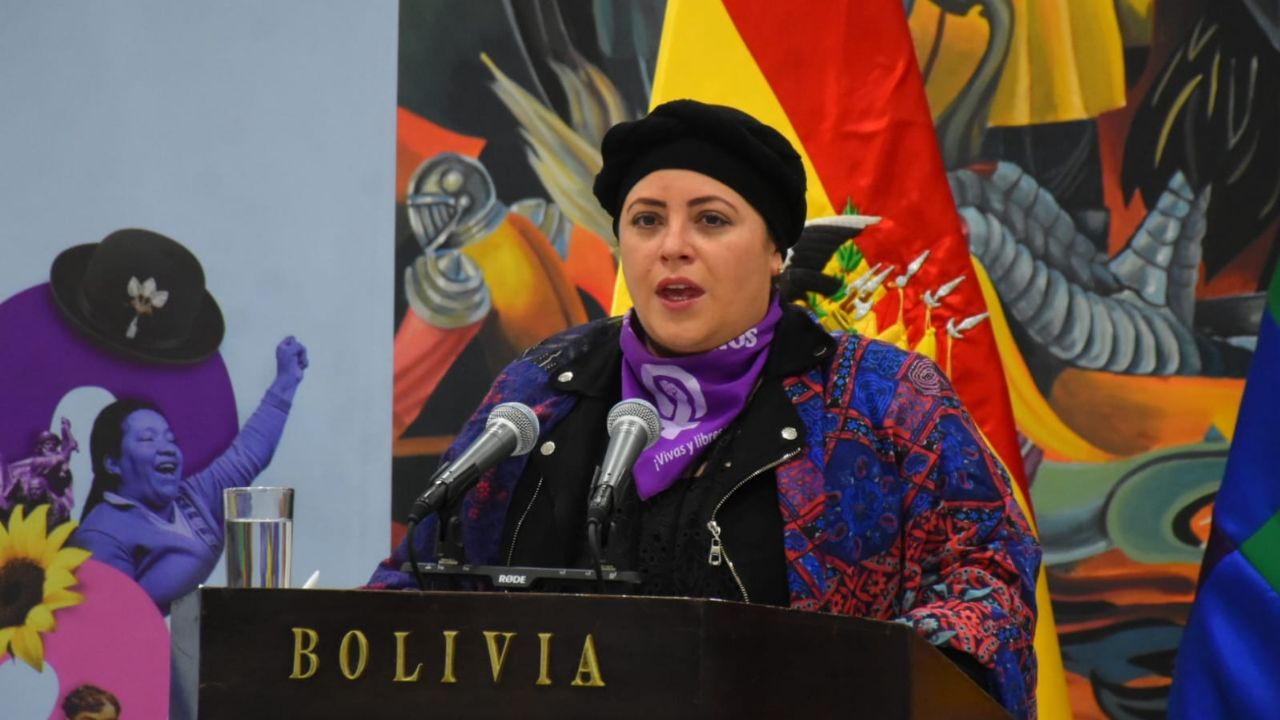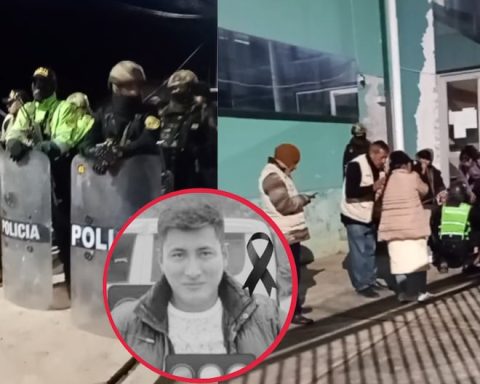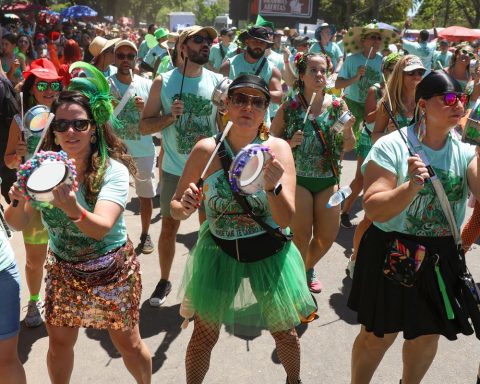Page Seven Digital
The Minister of the Presidency, María Nela Prada, presented this Wednesday the first conclusions of the Commission for the Review of Cases of Rape and Feminicide, established at the beginning of February. Among them are the recapture of those convicted of these crimes and the regulatory proposals to aggravate sentences.
“What unfortunately is happening, which is public knowledge and that fundamentally the victims suffer from it, is this cover-up by bad judges, this criminal act by bad judges. And unfortunately there are other judges who also manage, when what corresponds and what the Bolivian people are demanding from public servants, is precisely that they act within the framework of justice, “said Prada at a press conference.
In this period, 10 convicts who were “illegally” benefited by “bad judges” were recaptured: two for femicide, two for rape and six for murder of a woman or child before being classified as femicide. Among them are Richard Choque and Abram Peters Dick.
You can also read: Women demand harsher penalties for aggressors, Arce announces 5 measures
At the same time, there are nine judges prosecuted for these irregular releases. Four of them are under arrest, one is under house arrest and four are in the investigative stage. In addition, three people who are part of the judicial support staff and two lawyers were arrested.
Regarding the normative proposals, Prada indicated that it is proposed to aggravate the penal type of prevarication of the judge or prosecutor to sanction the “bad administrators” of justice. In this way, the sentence would be increased from 5 to 10 years, to 8 to 20 years in the case of processes for femicide, rape or infanticide.
On the other hand, different institutional agreements were worked on. One between the Ministry of Justice, the Ministry of Government, the Agency for Electronic Government and Information and Communication Technologies (Agetic) and the Judicial Branch to “take the technological leap” towards accessible and transparent justice; another between the Public Ministry and the General Directorate of the Penitentiary Regime for the exchange of information on persons deprived of liberty; and a third between the Public Ministry and the Supreme Court of Justice to monitor the execution of sentences.
You can also read: They paint the wall of femicides in Cochabamba
Regarding the generation of data, the strengthening of the Citizen Security Observatory was proposed to generate specific data on violence against women and the creation of a Justice and Gender Observatory to monitor the administration of justice.
“It is a responsibility of all Bolivians, it is not just a struggle for us as women, it involves us all. The fact of ending violence goes through a structural issue that is here (points to the head), which reproduces this sexist violence, unfortunately, day after day,” stressed the minister.
The Commission for the Review of Rape and Feminicide Cases was created in February in response to a series of demonstrations that took place in different parts of the country, demanding justice for the victims.
Then it became known that at least 119 convicted or accused femicides and rapists are currently free thanks to benefits they received from the justice system, according to a report prepared by the Women in Search of Justice Service of the Mujeres Creando collective.
















